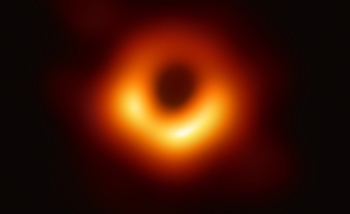New research co-authored by Perimeter Institute Faculty member Niayesh Afshordi suggests the speed of light might not always have been the same.
Afshordi and João Magueijo, a professor at Imperial College London, proposed nearly two decades ago that there may have been a time, immediately after the big bang, when the speed of light was slower than it is now.
In a paper published this week in Physical Review D, they propose a new (and testable) version of the idea. They suggest that in the early universe, light and gravity propagated at different speeds.
In their model, some details about the cosmic microwave background -- the afterglow radiation of the big bang -- reflect the way the speed of light and the speed of gravity vary as the temperature of the universe changes. They saw an abrupt change at a certain point, when the ratio of the speeds of light and gravity quickly went to infinity.
Read more in New Scientist and Forbes.
About PI
Perimeter Institute is the world’s largest research hub devoted to theoretical physics. The independent Institute was founded in 1999 to foster breakthroughs in the fundamental understanding of our universe, from the smallest particles to the entire cosmos. Research at Perimeter is motivated by the understanding that fundamental science advances human knowledge and catalyzes innovation, and that today’s theoretical physics is tomorrow’s technology. Located in the Region of Waterloo, the not-for-profit Institute is a unique public-private endeavour, including the Governments of Ontario and Canada, that enables cutting-edge research, trains the next generation of scientific pioneers, and shares the power of physics through award-winning educational outreach and public engagement.
You might be interested in



Spiralling light from M87’s supermassive black hole reveals strong magnetic fields
November 8, 2023